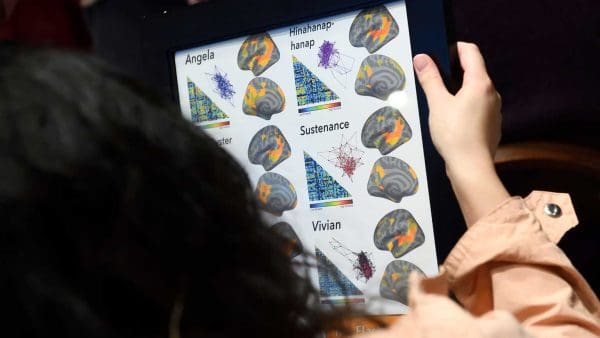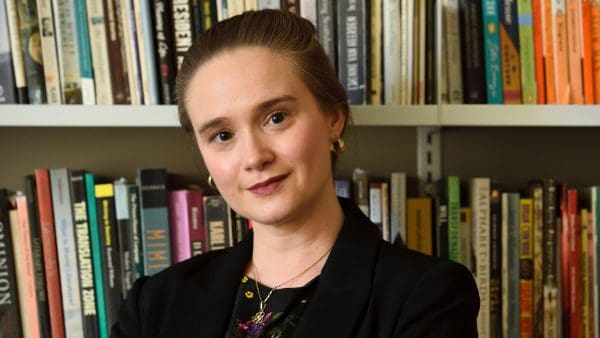
Their gift, through the Alexander Grass Foundation, is the largest ever to Johns Hopkins exclusively for the support of the humanities.
It establishes the Alexander Grass Humanities Institute as a focal point of programming for the humanities and humanities-related departments in the Krieger School.
The institute is named for the donors’ late father, a Pennsylvania businessman and philanthropist and founder in 1962 of what became Rite Aid Corp., now one of the nation’s largest drugstore chains.
“Study in the humanities is central to Johns Hopkins’ purpose as the nation’s first research university,” says Beverly Wendland, the James B. Knapp Dean of the Krieger School, where the institute will be housed. “We are grateful to Elizabeth Weese, Roger Grass, and the foundation for strengthening so substantially our work in the humanities.”
The Alexander Grass Humanities Institute will support visiting scholars and public speakers, graduate student fellowships, and undergraduate research projects. It will pave the way for faculty members from different departments to work together on innovative projects of mutual interest.
The breadth of humanities study at Johns Hopkins speaks to the depth and enthusiasm of the university’s support and the importance of humanities education, says Christopher Celenza, vice dean for humanities and social sciences and chair of the Classics Department.
“Especially for our undergraduate students, many of whom will change careers every five years, the humanities provide personal resiliency by helping people re-situate themselves in life’s different circumstances,” Celenza says. “They teach one how to do research that is translatable to other realms of inquiry; they build the capacity to follow complex rhetorical argumentation (all the more important in a world where information is moving around faster than ever); they hone our ability to express ourselves both orally and in writing; and they enrich our lives by allowing us to see the world in all its diversity.”
The institute’s first director will be William Egginton, Andrew W. Mellon Professor in the Humanities and in the Department of German and Romance Languages and Literatures. His latest book, published this year, is The Man Who Invented Fiction: How Cervantes Ushered in the Modern World.




